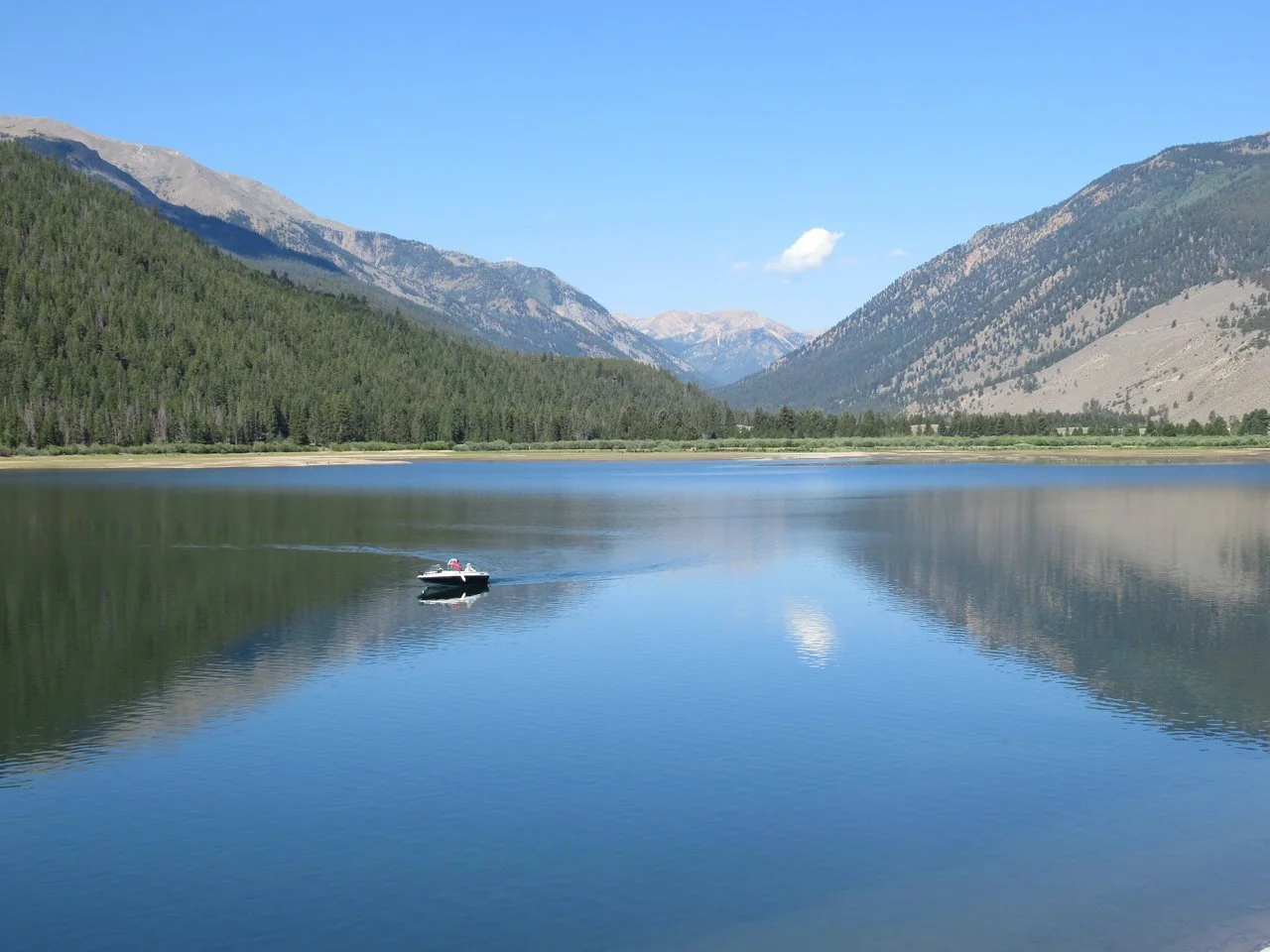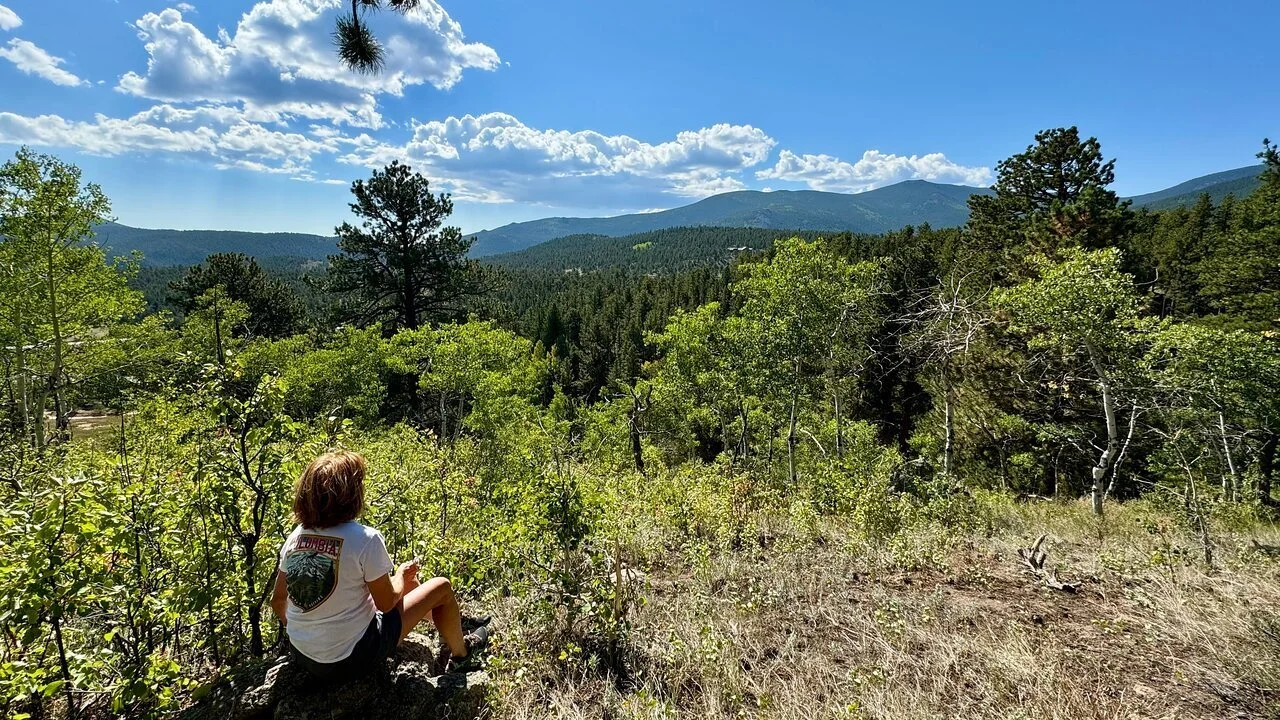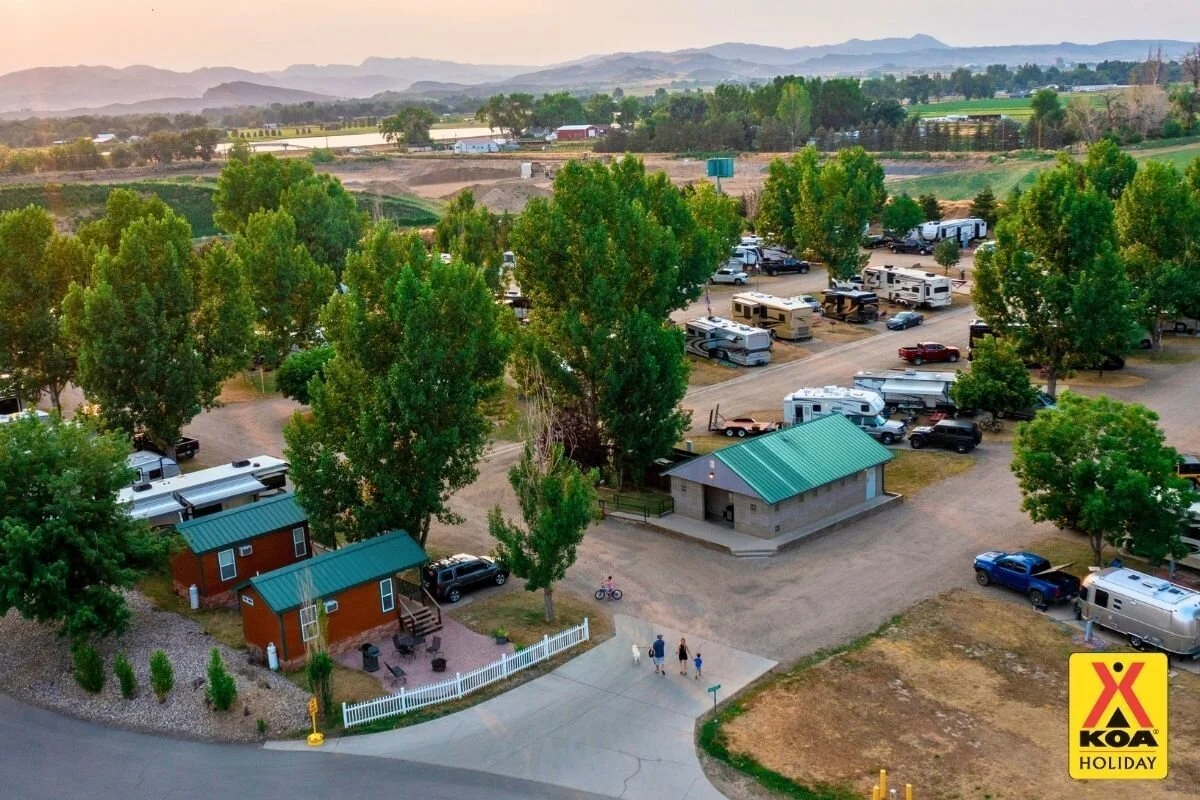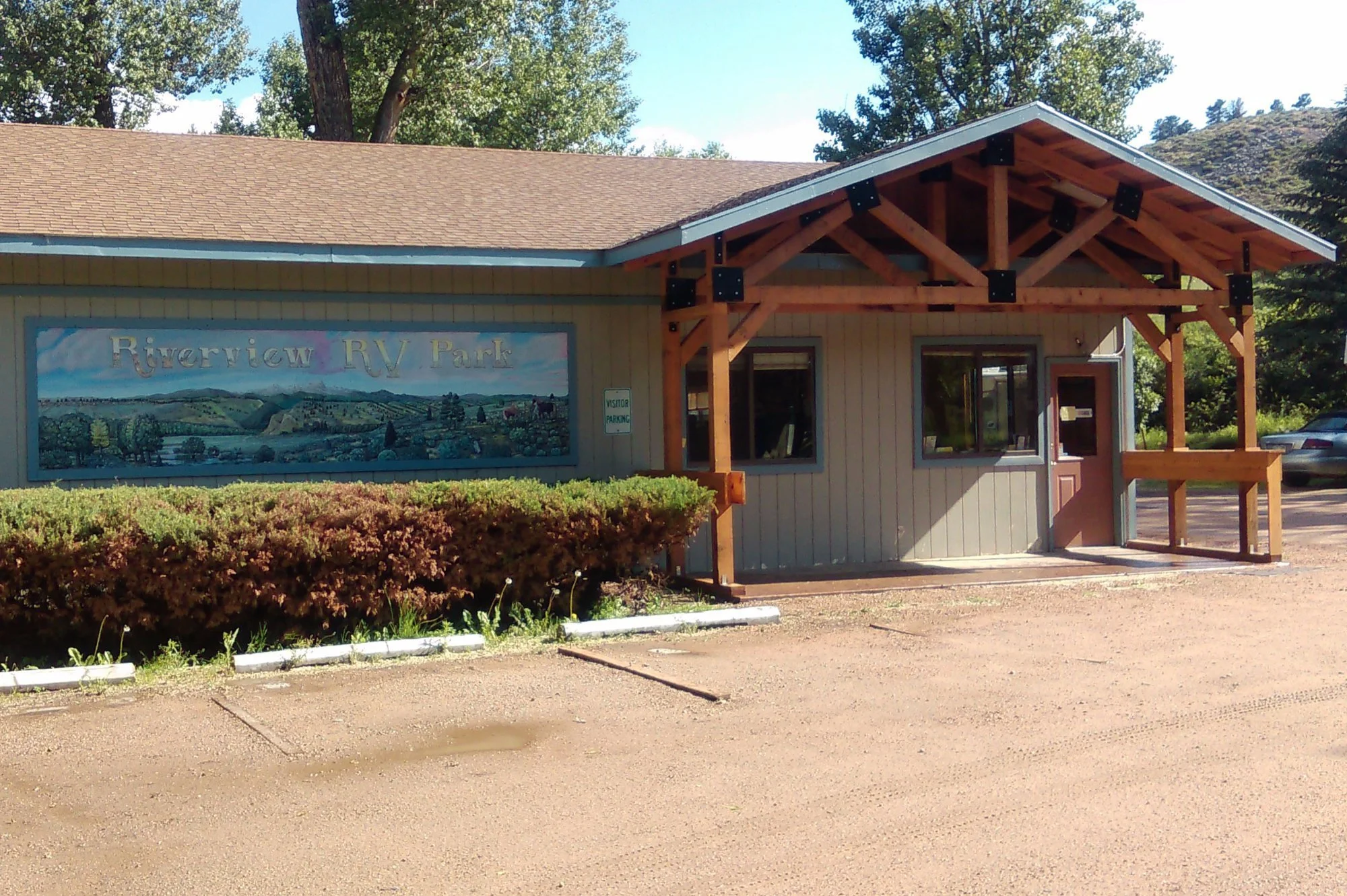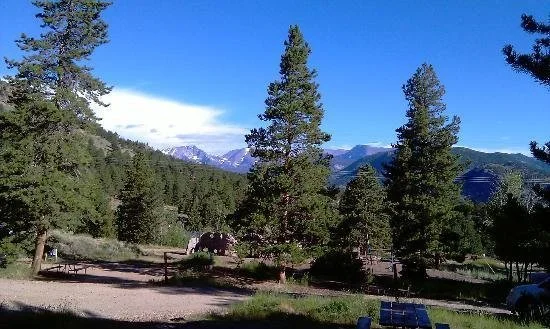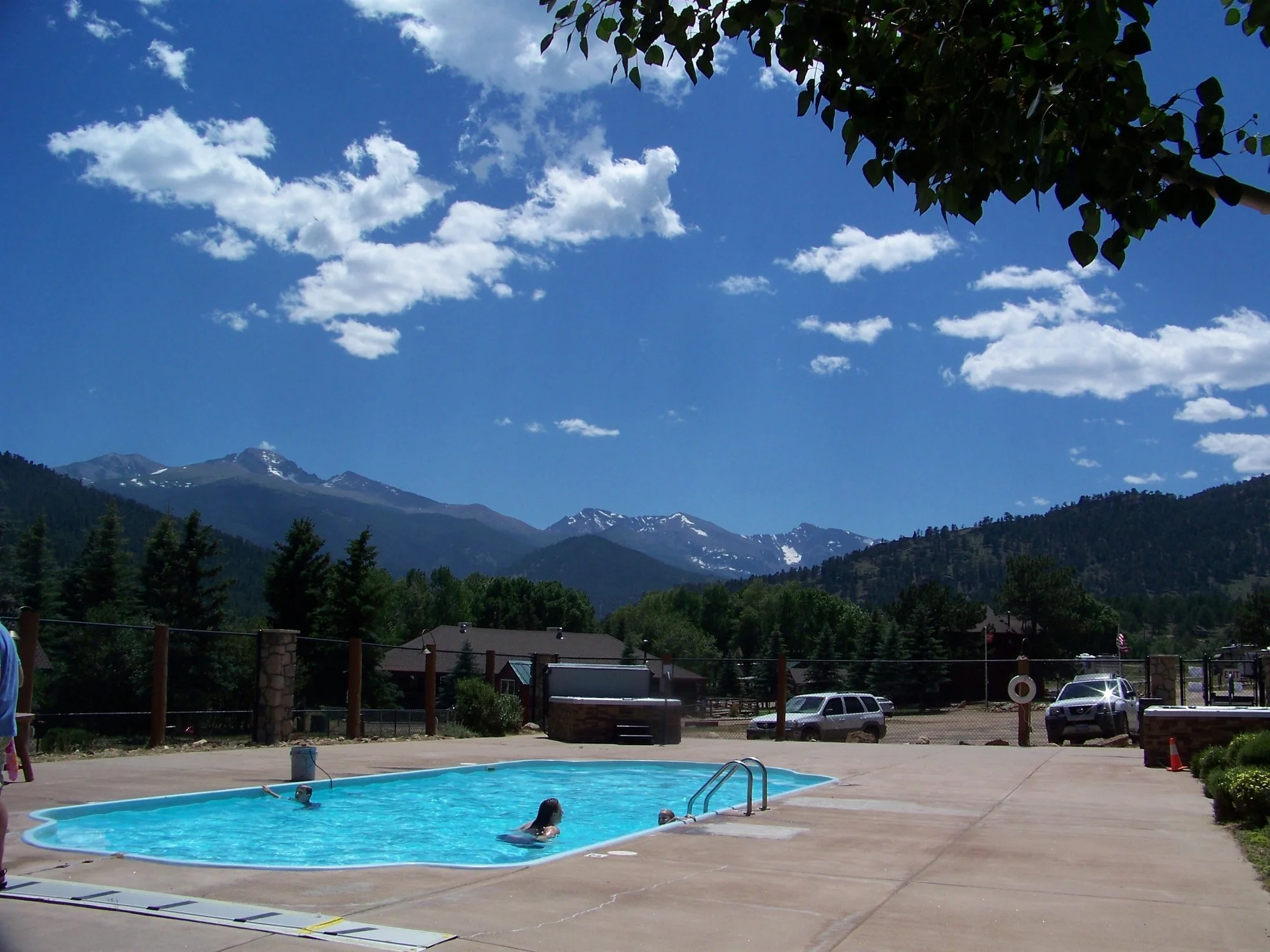Nestled in northern Colorado, Fort Collins combines vibrant urban culture with extraordinary outdoor recreation opportunities. This cycling-centric community features an extensive network of bike paths, including the stunning Poudre River Trail system. The surrounding natural areas, including Lory State Park, Horsetooth Reservoir, and Horsetooth Mountain Open Space, provide endless possibilities for outdoor enthusiasts - from rock climbing and hiking to paddling and horseback riding, with both waterfront and backcountry camping options available. Serving as an entrance point to the majestic Rocky Mountains and the vast Arapaho & Roosevelt National Forests, the area offers abundant opportunities for wilderness exploration, outdoor activities, and diverse camping experiences in breathtaking natural settings.
Camping Near Fort Collins
Breathe in pine-scented mountain air, hike rugged Rocky Mountain trails, and immerse yourself in nature's grandeur.
CampChimp is better in the app
Find Available Camping
The 5 best campgrounds near Fort Collins, CO
-

Glacier Basin Campground
 Rocky Mountain National Park, CO
Rocky Mountain National Park, CO


Glacier Basin Campground is a highly sought-after campground within Rocky Mountain National Park offering stunning alpine scenery and easy access to hiking trails.
-

Lory State Park
 Bellvue, CO
Bellvue, CO


Lory State Park boasts breathtaking vistas winding through valleys and rocky outcroppings along its extensive network of hiking trails complemented by cozy campsites tucked among towering ponderosa pines and vibrant wildflowers.
-

Mary's Lake Campground
 Estes Park, CO
Estes Park, CO


Chambers Lake Campground is a peaceful spot in the heart of the Roosevelt National Forest offering excellent fishing and hiking opportunities.
-

Dowdy Lake Campground
 Red Feather Lakes, CO
Red Feather Lakes, CO


Dowdy Lake Campground is a beautiful and secluded campground located in the Roosevelt National Forest perfect for a quiet getaway.
-

Moraine Park Campground
 Rocky Mountain National Park, CO
Rocky Mountain National Park, CO


Moraine Park Campground is a popular campground located in the heart of Rocky Mountain National Park offering breathtaking mountain views and abundant wildlife.
The 5 hardest-to-book campgrounds near Fort Collins, CO
The 5 best campgrounds for RV camping near Fort Collins, CO
The 5 best campgrounds for tent camping near Fort Collins, CO
Camping near Fort Collins guide
Mountains and Forests
Venture southwest to discover the majestic Rocky Mountain National Park, featuring established campgrounds and hundreds of remote backcountry sites amid spectacular alpine scenery. The expansive Arapaho and Roosevelt national forests encompass 1.5 million acres of pristine wilderness within the Canyon Lakes Ranger District, offering more than 20 campgrounds and extensive recreational opportunities. Experience the rugged beauty of State Forest State Park, renowned for its moose population and diverse accommodation options, including traditional campgrounds, backcountry camping, and year-round lodging in cabins, yurts, and mountain huts.
Grasslands and Plains
Journey eastward to explore the Pawnee National Grasslands, a sanctuary of wildlife and frontier heritage offering diverse recreational activities from birding to off-highway vehicle adventures. The area features both an equipped seasonal campground and year-round dispersed camping opportunities. Further south, discover aquatic recreation at Jackson Lake State Park, where multiple campgrounds accommodate both tent and RV camping along the shoreline. Additional outdoor pursuits, including fishing, hunting, and camping, can be found at the nearby Prewitt Reservoir to the east.
Wyoming
Travel northward to experience authentic Western heritage in Cheyenne, Wyoming's capital city. To the west, discover the recreational paradise of Curt Gowdy State Park in the Laramie Mountain foothills, featuring multiple reservoirs, water-based activities, and camping opportunities throughout the year. The adjacent Medicine Bow-Routt National Forest presents vast wilderness areas, numerous developed campgrounds, and extensive dispersed camping options across millions of pristine acres.
Front Range Urban Corridor
Journey south to experience Boyd Lake State Park near Loveland, offering waterfront recreation and camping facilities. St Vrain State Park near Longmont provides excellent fishing and wildlife viewing, with camping sites scattered around scenic ponds. South of Denver, Cherry Creek State Park features an expansive reservoir amidst rolling terrain, with year-round camping ranging from primitive sites to full-service RV spots. Alternatively, explore Golden Gate Canyon State Park west of the city, offering developed campgrounds, backcountry sites, and cozy cabin and yurt accommodations.
The region shines during spring, summer, and autumn months, offering ideal conditions for outdoor recreation and numerous cultural festivals. Wildflowers carpet the landscape in spring and early summer, while the grasslands and plains become a birdwatcher's paradise during May and June. Visitors should prepare for typical afternoon thunderstorms during spring and summer months. Winter activities largely depend on snowfall conditions, creating varying seasonal opportunities for cold-weather recreation.
- All Colorado state park camping requires advance booking, while Rocky Mountain National Park necessitates permits for backcountry camping. Popular destinations may implement visitor restrictions during peak seasons.
- The region's recreational areas and camping facilities often sit at considerable elevations, requiring awareness and preparation for potential altitude-related challenges.
- Anglers must obtain fishing licenses - required for those 16 and older in Colorado, and 14 and older in Wyoming.
Immerse yourself in the natural splendor of Poudre Canyon, where dramatic cliffs frame your camping experience. This mountain sanctuary offers an ideal escape with its network of hiking trails, world-class fishing opportunities, and abundant wildlife viewing. The constant melody of the flowing Poudre River provides a perfect backdrop for an unforgettable wilderness experience.


